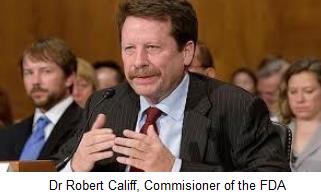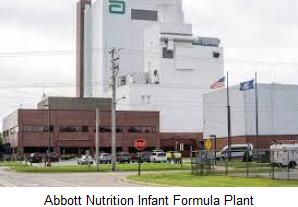The U.S. Food and Drug Administration (FDA) has issued a long-awaited internal report on the infant formula crisis. The report was authored by a team headed by Dr. Steven Solomon, Head of the FDA Veterinary Division. The report identified a number of areas of concern involving delays in communication, obvious operational failures and “general lapses”. Recommendations by Dr. Solomon included improved information. technology, intensified training of staff and an updated emergency response system to deal with food safety issues as they arise.

Predictably, there will be little retribution for incompetence or dereliction of duty and the crisis will “be handled through the personnel process”. The culture of the FDA is characterized by the public statement by the Director, Dr. Robert Califf, who stated, “We are not going to spend a lot of time going back, we are going to spend our time taking into account what happened and move forward.” Dr. Califf considers that the report provides a “clear road map for the infant formula issue and provides a nice bridge to the overall food program’s evaluation”.

In contrast a more detailed and incisive report on the issue was published in Politico entitled, “The FDA’s Food Failure” by Helena Bottemiller Evich on April 8th to which readers are referred.
The shortages that emerged still persist with many stores and outlets having 20 percent out-of-stock rates. The FDA may well wish to bury failures at numerous levels leading to the crisis, including the glaring lack of response to a whistle-blower report over three months together with a de facto moratorium on plant inspections attributed to the COVID crisis.
The Administration was obliged to arrange for military transport aircraft to bring in supplies of formula from overseas plants that were hastily approved. Obvious problems identified in the internal FDA report and by media include extreme concentration of production among a few plants. The Evich exposé identified a preoccupation with achieving production goals and maximizing profit at the expense of quality and safety by Abbott Nutrition, the largest manufacturer of a range of specialty and conventional formulas.
Given the self-serving internal FDA report and the disinclination to hold managers within the Agency responsible for lack of response to a potential crisis and dereliction of duty, it is inevitable that a similar food-related crisis will occur in the future.
EGG-NEWS has consistently advocated for a dedicated U.S. food safety agency since the best interests of consumers would be served by a single entity suitably funded and staffed and provided with the authority to concentrate on the safety of domestic and imported foods.